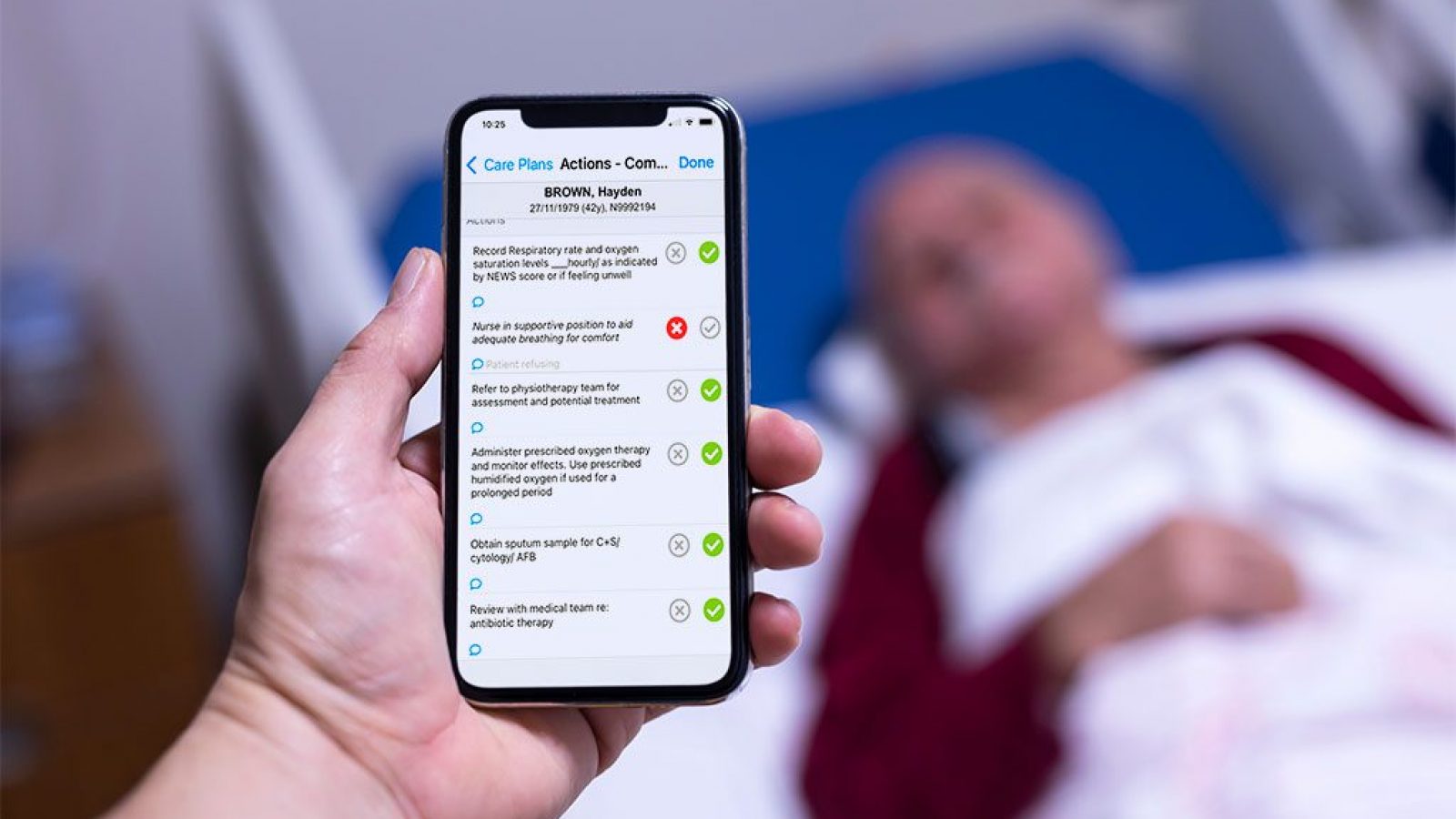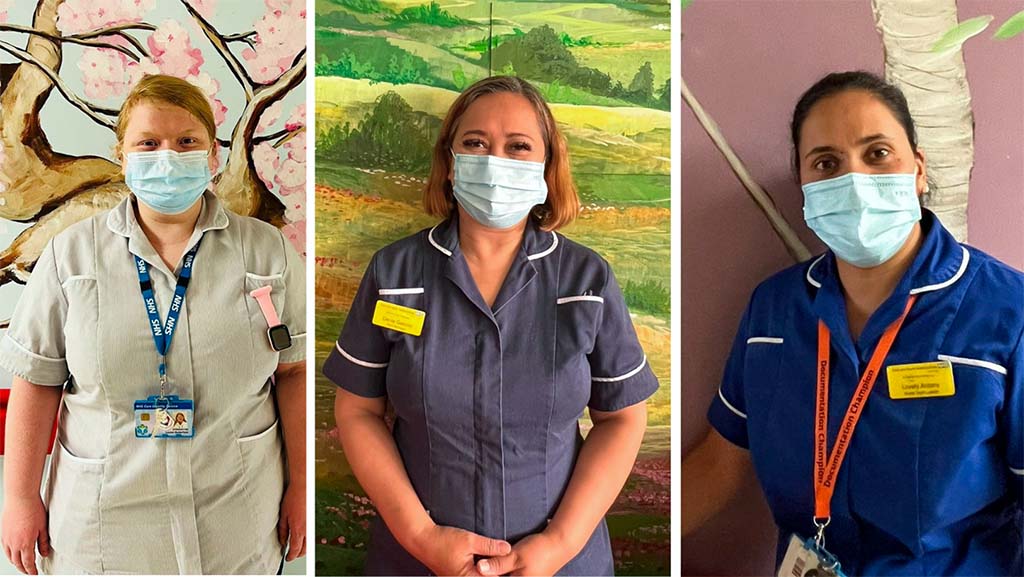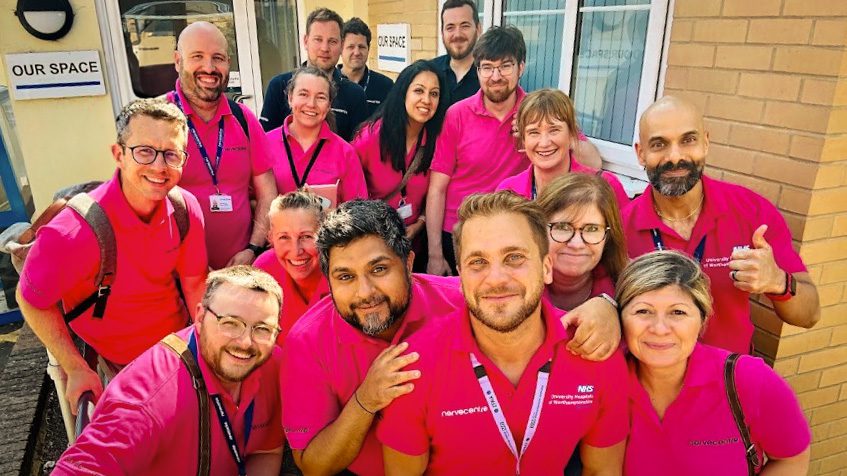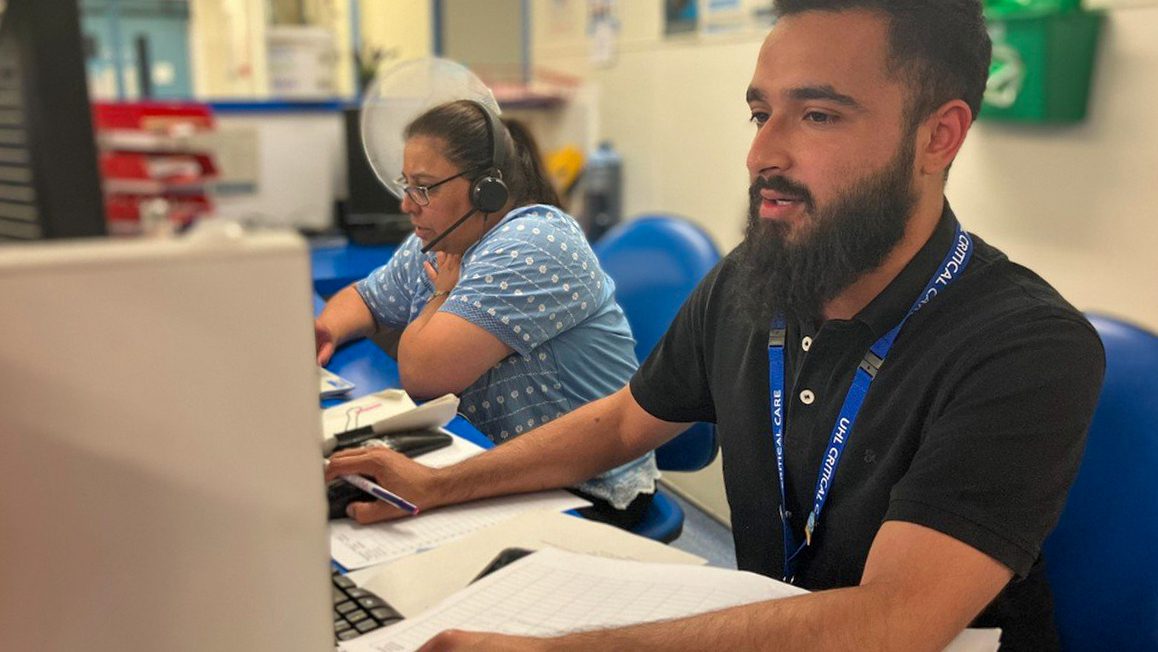The full rollout of Nervecentre’s digital care plans follows a successful pilot earlier this summer in two wards at Lister, a 566-bed general and acute district hospital in Stevenage. This nursing improvement initiative is part of the trust’s wider Keeping our Patients Safe (KOPS) programme that focuses on improving clinical decision-making by replacing paper processes with digital tools.
The pilot included a digital nursing assessment proforma (NAP) which, upon review, identified a dramatic saving in nursing time. A paper NAP takes 45 minutes to complete on average, whereas digital NAPs take just 9.6 minutes – an average time saving of 35.4 minutes for each patient.
Nervecentre’s digital care plans have now been fully deployed across all remaining adult inpatient wards at Lister. The hospital was already using Nervecentre for eObs, NEWS2 escalations and AKI alerts, fluid balance, and in its Emergency Department. It is now looking to introduce direct access to patients’ primary care records for clinicians.
The assessments and care plans Lister’s nurses are now recording digitally in Nervecentre include:
- NAPs
- harm-free care assessments (nutrition, tissue viability, moving and handling and falls)
- harm-free care plans
Before KOPS, nurses were handwriting their assessments and care plans. The problems associated with paper are well-documented; paper notes are isolated from other aspects of the patient record. Also, a piece of paper can only be in one place at a time, so access to the information is limited.
Replacing paper notes with electronic nursing assessments and care plans has transformed how the hospital’s care teams record, access, and utilise patient information. Lister’s nurses are capturing details of assessments, notes, and observations in Nervecentre on mobile devices at the patient’s bedside. The information is visible to the clinical and operational teams as soon as it is known as an integrated part of real-time electronic patient records, helping them deliver safer care.
Clinical Support Worker Lauren Butterfield, who was involved in the pilot, said:
It’s helped us out so much, especially with our patient food charts and fluids – it’s so much easier to record everything. With the digital risk assessments we can now help the nurses out more, and we know how many patients need extra support. It’s definitely a big step forward to have this.
Nurse Team Leader Lovely Anthony said:
Going digital makes it more accurate than handwritten paperwork, where information can be missed or is not so easily located. It’s accessible to everybody, so you don’t have to ask ‘where is this paperwork’. I think it’s really good.
Ward Manager Cecile Gascon, said:
The digitalisation of care plans and assessments saves us time as it’s very accessible, and it’s cost-effective as we don’t need to print paper anymore. There is better communication between the multidisciplinary team as it’s all in one system, and makes it much quicker to do audits. The doctors can actually do things remotely too, for instance prescribing medication without needing to come into the ward to prescribe in the drug chart.
East and North Hertfordshire NHS Trust has deployed Nervecentre’s digital care plans at Lister Hospital in Stevenage, with great feedback from nursing staff including Lauren Butterfield, Cecile Gascon and Lovely Anthony. Picture: East and North Hertfordshire NHS Trust
Paul Volkaerts, CEO at Nervecentre, said:
Our mission at Nervecentre is to make the NHS run on real-time data. Digital care plans are a great example of how NHS trusts can digitise paper-based care, using mobile technology and real-time data to provide safer and more efficient healthcare services.







